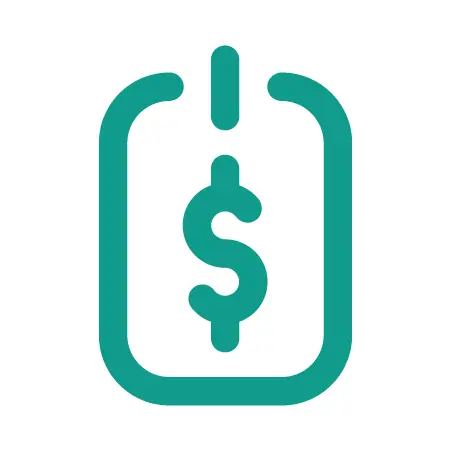- PRODUCT

Restaurant POS
Scalable restaurant POS system for global chains
Tablet Ordering
Elevate guest experience with server app
Customer Order Display
Real-time customer interaction and order enhancement
Table Layout
Efficient table management for optimizing turnover
Restaurant reservation Software
Simplify table bookings to enhance guest experience & operational efficiency.

Inventory Management
Streamline inventory, reduce waste, boost profitability
Base Kitchen
Central kitchen software to optimize operations
Recipe Management
Accurate kitchen ingredient tracking for waste reduction
Supply chain management
Stress-free logistics with our restaurant supply software

Kitchen Display System
Tame kitchen chaos with kitchen display system
kitchen production system
Future-ready kitchen production system
forecasting
Accurately forecast demand and optimize your inventory

RESTROWORKS MARKETPLACE
Grow with Restroworks
tECHNOLOGY Partnership
Efficient integrations for hot, fresh food delivery

Restaurant Analytics Software
Gain insights that drive growth
Cockpit App
Real-time insights on the go
Enteprise Reporting
200+ reports for data-driven restaurant success
Anti theft
Prevent theft, protect restaurant profits with anti-theft software

SELF SERVICE KIOSK
RestroGO hardware agnostic self-service kiosk software
QR CODE ORDERING
RestroScan table and takeaway QR code ordering
FOOD DELIVERY APP
RestroAPP branded app for Takeout & Delivery
ONLINE ORDERING WEBSITE
RestroWEB, your branded online ordering website
- PLATFORM

API
Empower your integrations with our open API

Solution Architecture
360° success view for scalable profitability.

Security & Compliance
Data security beyond global standards

ERPs
ERP integration made seamless

Menu Management
Create and manage seamless menus across all your locations

API
Empower your integrations with our open API

Solution Architecture
360° success view for scalable profitability.

Security & Compliance
Data security beyond global standards

ERPs
ERP integration made seamless

Menu Management
Manage menus of all your locations with ease
- SOLUTIONSBy Role
Serving simplicity to IT, ops, finance and more

information technology
Deploy, manage POS, track sales, inventory, generate reports

OPERATIONS
Empower operations for efficient, profitable restaurant management

Finance
Real-time outlet numbers always at your fingertips.

Owner
Manage recipes, costs, expenses, and prevent theft remotely

Franchise
One solution for multiple regions and outlets
By FormatAdaptable cloud solution for effective restaurant management

FINE DINE
Serve delicacies that delight customers

QSR
Comprehensive cloud-based QSR software solution

Cloud Kitchen
Coordinate multiple kitchens and aggregators

FAST CASUAL
Quick turn around time like no other

HOTELS
Serve happiness with hospitality like never before

FOOD Court
Efficiency for high-traffic food court management

Bars and pubs
Elevate your ambiance with our bar management solutions

Catering
Unleash culinary creativity with our catering management excellence

Cafe
Brew success with our cafe-centric management innovations

Drive-thru
Drive efficiency with our streamlined drive-thru management suite
- PARTNER
- RESOURCESEXPLORE
- COMPANY
About us
Meet Restroworks! A leading unified restaurant technology
platform that empowers global chains to thriveCareers Current Opening
Explore job openings at Restroworks
Events
Explore where Restroworks software is
making waves in the restaurant world.Newsroom
Read the latest and greatest from the Restroworks family
Compliance
Security, privacy, and compliance at Restroworks
- Let’s Talk
- Get Demo
GLOSSARY
Mixology
Mixology elevates beverage programs by combining creativity, expertise, and technique, helping restaurants enhance guest experiences, optimize drink sales, and strengthen brand reputation.
What is Mixology?
Mixology refers to the art and science of crafting cocktails, combining knowledge of spirits, flavor profiles, and presentation to create distinctive beverages. In restaurants, it emphasizes creativity and consistency, transforming drinks into memorable experiences rather than just beverages. A thoughtfully executed mixology program can enhance table service, encourage higher beverage spend, and position the restaurant as a destination for quality and innovation in dining.
Core Elements of Mixology:
- Ingredient Knowledge: Understanding the characteristics of spirits, liqueurs, mixers, and garnishes ensures cocktails are balanced, flavorful, and aligned with the restaurant’s menu concept.
- Techniques and Tools: Mastery of shaking, stirring, muddling, and layering, along with appropriate bar tools, supports consistent quality and efficient service.
- Recipe Development: Crafting signature cocktails or seasonal offerings allows the beverage program to differentiate itself and remain relevant to evolving customer preferences.
- Presentation and Service: Attention to glassware, garnish, and visual appeal enhances the guest experience and reinforces brand identity.
- Inventory Management: Tracking spirits, mixers, and garnishes ensures availability, minimizes waste, and supports operational efficiency.
How to Implement Mixology Effectively?
- Curated Beverage Program: A thoughtfully designed drink menu that pairs well with the food offerings creates a seamless dining experience while reinforcing the restaurant’s brand identity.
- Staff Training and Expertise: Bartenders with strong mixology knowledge ensure drinks are consistent, deliver quality service, and can engage guests with insights about ingredients and flavor profiles.
- Standardized Procedures: Clear preparation guidelines and presentation standards help maintain quality across all shifts, reduce mistakes, and keep service running smoothly.
- Inventory Control and Cost Management: Careful tracking of ingredients, rotation of stock, and strong supplier coordination help protect margins while keeping operations efficient.
- Customer Engagement: Consider highlighting signature cocktails or seasonal drinks to add excitement for guests, encourage repeat visits, and strengthen the overall beverage program’s impact.
Benefits of Mixology:
- Enhanced Guest Experience: Creative and well-executed cocktails contribute to memorable dining moments, strengthening customer satisfaction and loyalty.
- Revenue Growth: Distinctive beverage offerings can increase per-ticket sales and boost overall beverage revenue, enhancing profitability.
- Operational Consistency: Standardized preparation and presentation ensure drinks meet quality expectations consistently, even during high-volume periods.
- Brand Differentiation: A strong mixology program positions the restaurant as innovative and trend-aware, attracting new customers and retaining existing ones.
- Inventory and Cost Efficiency: Careful monitoring of ingredients and usage reduces waste, supports budgeting, and improves operational efficiency.
Mixology transforms a beverage program by combining creativity, operational discipline, and customer engagement. Restaurants that prioritize well-crafted cocktails can enhance the guest experience and drive revenue, as well as create a competitive advantage in a crowded hospitality market.





